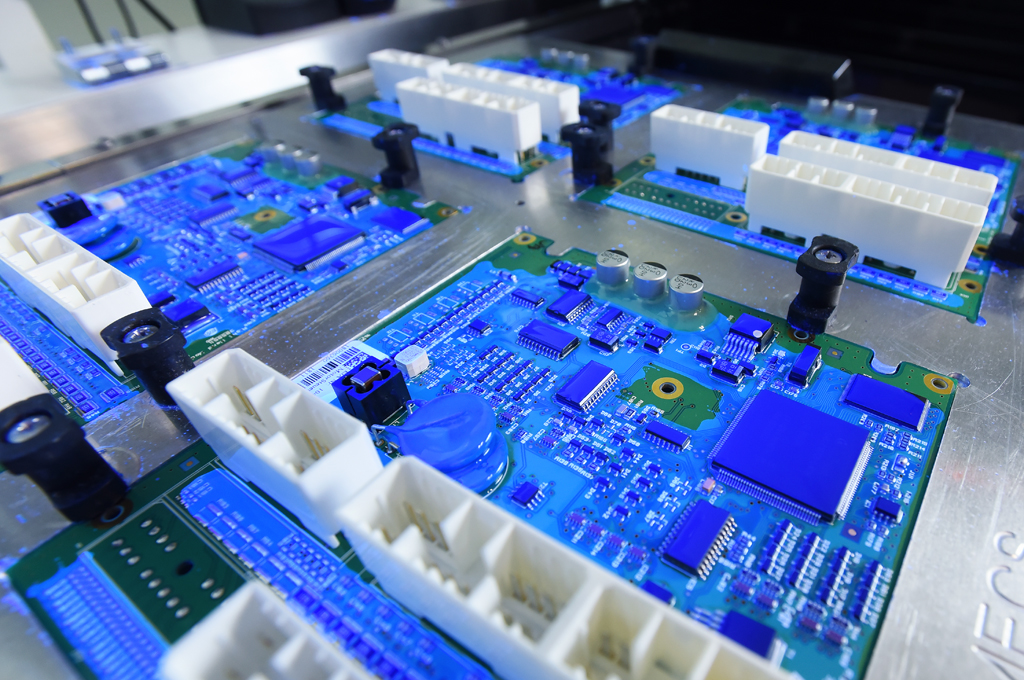Conformal coatings have become an essential part of manufacturing electronic devices that need to function reliably in harsh and unpredictable environments. As electronic components get smaller and more densely packed, they become more vulnerable to damage from moisture, chemicals, dust, and mechanical stresses. Conformal coatings provide a protective barrier that shields printed circuit boards and components from such environmental factors.
What are Conformal Coatings?
Conformal coatings refer to thin, protective films that are applied tightly to conform to the contours and profiles of printed circuit boards (PCBs) and their components. They create an isolating layer that protects components from exposure while maintaining the functionality and performance of the PCB assembly. Conventionally, conformal coatings range in thickness from 25 to 75 microns. Some advanced nanocoating technologies can produce ultrathin layers as low as 2 microns.
Types of Conformal Coatings
There are different types of Conformal Coatings suited for various applications and conditions:
Acrylic Coatings: Acrylic resins produce durable, cost-effective coatings with good adhesion and dielectric properties. They offer protection against moisture, chemicals, dust and have working temperatures up to 85°C. Typical applications include general consumer and commercial electronics.
Silicone Coatings: Silicone polymers are flexible conformal coatings that provide excellent protection against moisture, chemicals, dust, gases and function from -55°C to 200°C. They are widely used in automotive, military, aerospace and oil & gas applications requiring maximum reliability.
Urethane Coatings: Aliphatic urethane coatings bond well to plastics and metals while resisting moisture, chemicals, abrasion and have a working temperature range of -55°C to 150°C. They are commonly used in industrial equipment and consumer appliances.
Vinyl Coatings: Vinyl resins produce low-cost conformal coatings suitable for low-end commercial and consumer applications from -30°C to 85°C. They offer basic protection against moisture and dust.
Benefits of Conformal Coatings
The key benefits of using conformal coatings in electronic devices include:
Environmental Protection – Conformal coatings act as a protective barrier to prevent moisture, dust, chemicals from reaching sensitive PCB components. This significantly improves reliability in harsh conditions.
Simplified Repair & Maintenance – Coated boards have higher tolerance for dust and moisture during repair. Conformal coatings deter corrosion and short-circuiting, reducing maintenance costs.
Aesthetics – Finished PCB assemblies have a cleaner, professional look with an applied conformal coating compared to uncoated boards.
Extended Lifespan – By protecting components from environmental stressors, conformal coatings help avoid failures and prolong the usable lifetime of electronic devices.
Regulatory Compliance – Certain industries like medical, automotive etc. require ruggedized electronic units able to withstand cleaning/sterilization procedures. Coatings enable compliance with industry certifications.
Applications of Conformal Coatings
Due to their protective properties, conformal coatings find widespread use across many industries:
Consumer Electronics – Devices exposed to dust, sweat, moisture like TVs, phones, tablets, wearables, remote controls etc.
Automotive Electronics – Components under harsh engine heat and vibration conditions like diagnostic modules, sensors, infotainment systems.
Industrial Automation – Equipment functioning in oily, wet, dirty industrial environments such as PLCs, motor drives, HMI panels.
Medical Electronics – Implantable devices, diagnostics tools requiring sanitization and durability.
Military/Avionics – Mission-critical units meant for extreme climates facing temperature extremes, shock & impact.
Telecom Equipment – Outdoor units subjected to rain, dust, pollution threats like5G base stations, utility boxes.
Smart Home Systems – Alarm panels, doorbell cameras, thermostats operating under changing humidity levels.
Benefits of Conformal Coating Processes
Applying conformal coatings is a precision coating process that requires competent expertise to generate reproducible results. Some key benefits of professional conformal coating services include:
Batch to Batch Consistency – Consistent coating quality, thickness and coverage for mass manufacturing are ensured through automated processes.
Fine-line Capability – Modern selective coating methods allow coating even 01005 and 0201 fine-pitch components without bridging or shorts.
Curing Control – Precise temperature and time settings take the coating through various curing stages for optimum physical/electrical properties.
Clean Room Environment – Conformal coating is conducted in ISO-certified clean rooms to avoid contamination during manufacturing.
Reliability Testing – Finished boards undergo environmental reliability testing like temperature cycling, shock/vibration to certify coating performance.
Sustainability – Green coating materials, recovery/reuse of solvents/coating materials are part of the eco-friendly coating process.
conformal coatings have become indispensable in manufacturing robust electronic devices capable of withstanding harsh operating conditions. The wide variety of protective coatings coupled with advanced application technologies ensure optimal shielding and reliability of electronics. With the ongoing miniaturization of components, conformal coatings will remain a critical enabling technology for connected devices of the future as well.
*Note:
1. Source: Coherent Market Insights, Public sources, Desk research
2. We have leveraged AI tools to mine information and compile it

